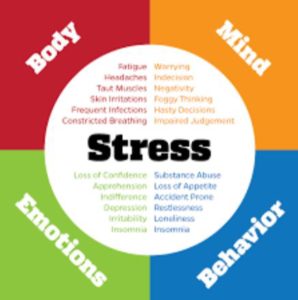Boost, Boost, Boost Your Metabolism!
According to research published in the Public Health Nutrition journal, our metabolism slows as we age. In a review of data specifically on energy expenditure, researchers found simply getting older is associated with progressive declines in basal metabolic rate. Compounded with that, there are many daily habits that can drain one’s metabolism even further.
Cut out the below habits and watch your metabolism and energy levels improve.
Skipping Breakfast:
Eating a nutritious breakfast is always a good way to start your morning. Because your metabolism slows down during sleep, eating can fire it up and help you burn more calories throughout the day. According to Rush University Medical Center, “When you eat breakfast, you’re telling your body that there are plenty of calories to be had for the day. When you skip breakfast, the message your body gets is that it needs to conserve rather than burn any incoming calories.”
Eating the Wrong Breakfast:
If you grab a sugary doughnut or eat a muffin because you “do not have the time,” you are setting yourself up to crash later. Instead, take a few extra minutes to eat a filling protein and fiber like eggs, yogurt and berries, or whole-grain (or sprouted grain) toast topped with a nut butter (peanut, almond, cashew).
Not this:
Sitting Too Much:
Sitting for extended periods puts your body into energy-conservation mode, which means your metabolism can suffer. According to the National Health Service, sitting for long periods is thought to slow metabolism, which affects the body’s ability to regulate blood sugar, blood pressure and break down body fat. An expression that has become populate states that “sitting is the new smoking” when it comes to the affects on a person’s body. Break the sedentary routine and reduce your risk of ill health by exercising regularly – a minimum of 150 minutes a week is recommended.
Neglecting Strength Training:
Cardiorespiratory exercise can quickly burn calories, but once you are done running or cycling, your calorie burn quickly returns to normal. When you do HIIT (High-Intensity Interval Training) and resistance-based workouts, however, your calorie burn stays elevated for longer as your muscles repair themselves. The American Council on
 Exercise (ACE) states “Strength training is a key component of metabolism because it is directly linked to muscle mass. The more active muscle tissue you have, the higher your metabolic rate.” Additionally, according to ACE, a pound of muscle burns an additional 4–6 calories each day compared to a pound of fat.
Exercise (ACE) states “Strength training is a key component of metabolism because it is directly linked to muscle mass. The more active muscle tissue you have, the higher your metabolic rate.” Additionally, according to ACE, a pound of muscle burns an additional 4–6 calories each day compared to a pound of fat.
Not Getting Enough Protein:
Protein feeds your muscles, promotes satiety and is an important component to sustaining a healthy weight. Eat too little, and you may have trouble building or maintaining muscle mass. Also, protein  requires more energy to break down than carbs or fat, so you’ll actually burn more calories during digestion.
requires more energy to break down than carbs or fat, so you’ll actually burn more calories during digestion.
Not Getting Enough Sleep:
One bad night of sleep is enough to leave you feeling sluggish and impair your cognitive processing. Science from the National Institutes of Health shows decreased metabolism and hormonal imbalances may follow several nights of poor or inadequate sleep in a row.
Not Drinking Enough Water:
In a study published in The Journal of Clinical Endocrinology & Metabolism, researchers found drinking 500  milliliters of water (about 2 cups) increases metabolic rate by 30%, and that spike lasts for more than an hour. So, drink water throughout the day to stay hydrated, and you will get the added benefit of a boosted metabolism.
milliliters of water (about 2 cups) increases metabolic rate by 30%, and that spike lasts for more than an hour. So, drink water throughout the day to stay hydrated, and you will get the added benefit of a boosted metabolism.
Giving into Stress:
When stress levels increase, your body produces a hormone called cortisol. Cortisol  leads to increased appetite, makes us crave comfort foods, decreases our desire to exercise and reduces sleep quality — all things that negatively impact metabolism. Therefore, managing stress can go a long way toward protecting your body’s internal combustion.
leads to increased appetite, makes us crave comfort foods, decreases our desire to exercise and reduces sleep quality — all things that negatively impact metabolism. Therefore, managing stress can go a long way toward protecting your body’s internal combustion.
(References: My Fitness Pal; American Council on Exercise; National Health Service)

